WMO under way to preparing its new Data Policy
The virtual WMO Data Conference (16–19 Nov. 2020) and the preceding preparatory workshops are a milestone towards an agreement on a new Data Policy in 2021.
Looking back, the WMO constituent bodies have adopted thousands of resolutions since 1950. But only one, Resolution 40 of the 12th World Meteorological Congress (WMO, 1995), has needed no other identifier and continues to be known simply as “Resolution 40” (whole title “WMO Policy and Practice for the Exchange of Meteorological and Related Data and Products including Guidelines on Relationships in Commercial Meteorological Activities”). On the occasion of its 70th anniversary, WMO published a very valuable document called “Origin, Impact and Aftermath of WMO Resolution 40” (see: https://library.wmo.int/records/item/56926-origin-impact-and-aftermath-of-wmo-resolution-40#.YNm1IhMzZQ9), reflecting the development of WMO and its role for meteorological and hydrological data.
Moving into a rapidly developing world of Big Data, Open Data, Open Science, and an increasing need for data availability and exchange, e.g. to support the achievement of the 17 UN SDGs, the UN Sendai Framework for Disaster Risk Reduction, the PARIS Climate Agreement, and in general the “Leaving no one behind” principle, the new WMO policy statement reads as follows:
“As a fundamental principle of the World Meteorological Organization (WMO) and in consonance with the expanding requirements for its scientific and technical expertise, WMO commits itself to broadening and enhancing the free and unrestricted international exchange of meteorological and related data and products.”
Providing data and data products on weather, climate and water, hydrology is an essential and integral part within this development of WMO, steered by the Hydrological Assembly, the Hydrological Coordination Panel, several working groups and the National Meteorological and Hydrological Services world-wide. ICWRGC, BfG, their global data centres and the Global Terrestrial Network Hydrology are pro-actively involved and part of this development (see https://www.gtn-h.info/).
Therefore, ICWRGC’s Dr. Stephan Dietrich contributed two posters to the virtual poster session of the WMO Data Conference:
- Poster #1.09 “Observations of the Global Terrestrial Water Resources
- Poster #3.17 “Consistent monitoring of global water cycle and resources variability across scales: Where do we stand?”
Additionally, the following GTN-H members supported the WMO Data Conference with own contributions:
- GPCC: Ameliorating of globally collected climate data to global reference data sets since more than 30 years, the story of the Global Precipitation Climatology Centre (GPCC), M. Ziese
- IGRAC: Sharing knowledge of national groundwater monitoring programmes, C. Ruz-Vargas
- HYDROLARE: Development of the International Data Center for Hydrology of Lakes and Reservoirs, V. Vuglinski



